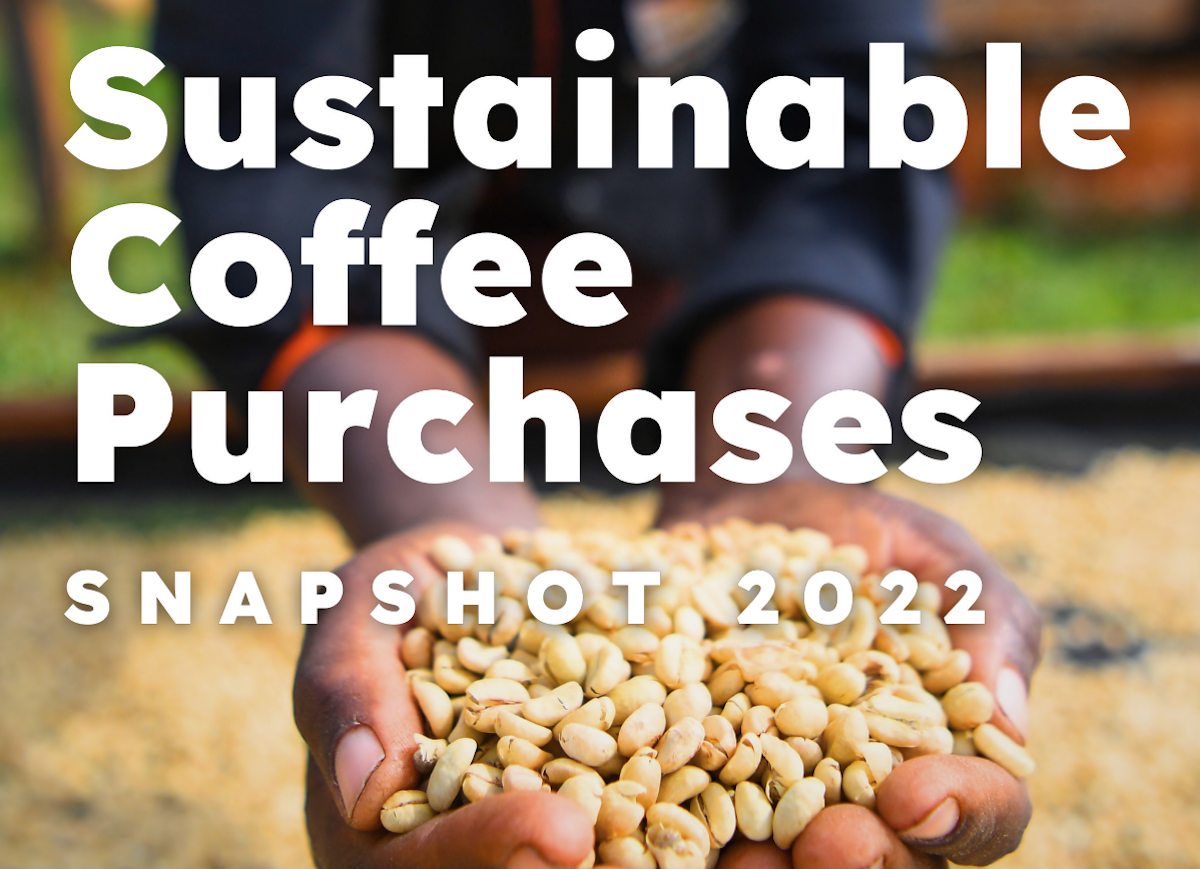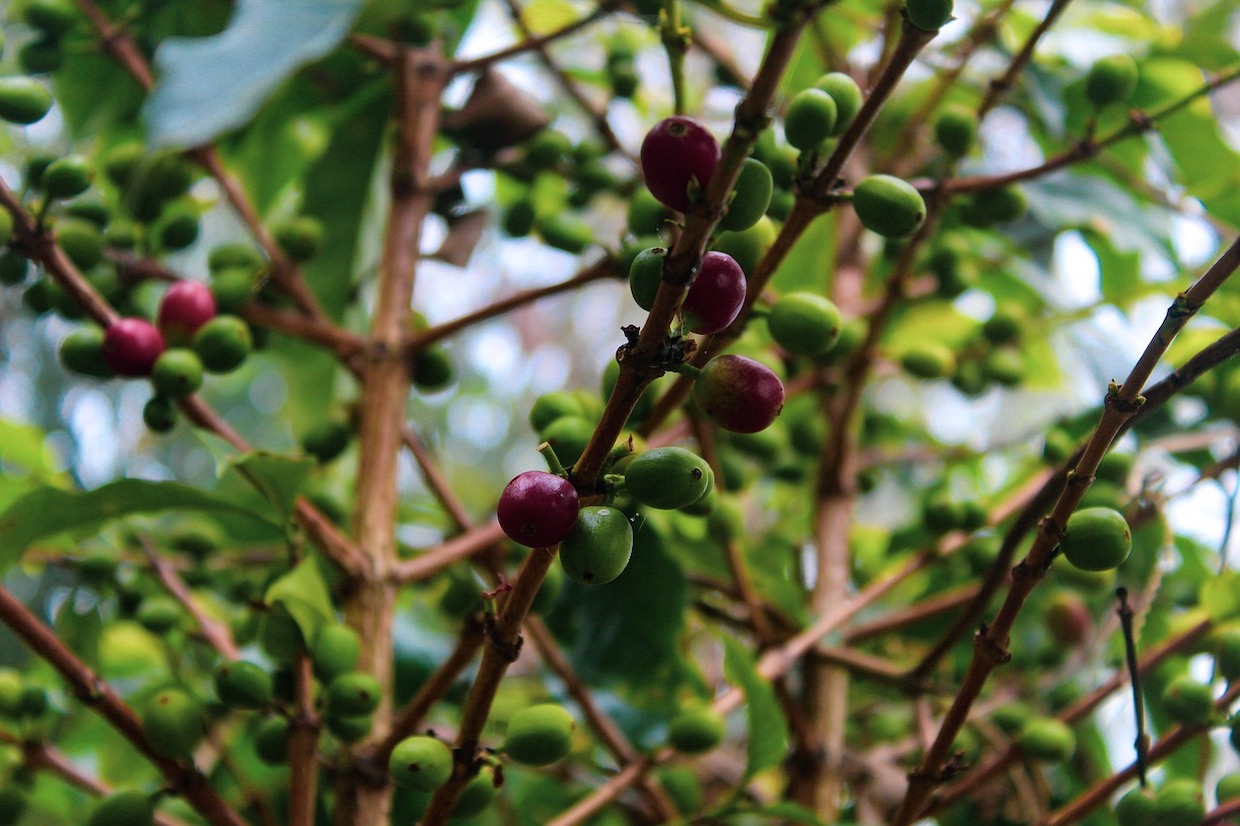
Screenshot from the GCP Snapshot Report 2022. Find the full report here.
More than 70% of the green coffee purchased by eight of the world’s largest green coffee buyers in 2022 met a recognized baseline sustainability standard, according to the latest annual report from the Global Coffee Platform (GCP).
GCP, a Europe-based membership organization supporting pre-competitive sustainability efforts throughout the global coffee industry, has been issuing the “GCP Snapshot Report” on a nearly annual basis since 2018.
The 70% mark is the highest in the report’s history, representing 26 million 60-kilo bags of green coffee out of 36 million bags purchased by the reporting companies in 2022.
The 2021 GCP Snapshot, released a year ago, showed that 55% of coffee purchased by those companies met sustainability standards. The group noted that the 2022 increase can be attributed to commitments among the companies to more sustainable purchasing, but also to an increase in the number of private, in-house sustainability schemes recognized in the report.
Joining in the collective purchase reporting effort were the predominantly European and United States-based coffee companies JDE Peet’s, Julius Meinl, Keurig Dr Pepper, Melitta Group, Nestlé, Supracafé, Tesco and Westrock Coffee Company.
“Over the past five years, extraordinary commitment and disclosure from prominent coffee companies has provided transparent information through the annual GCP Snapshot Report showing the sector how increases of sustainable coffee purchases are expanding the global marketplace for sustainable coffees,” GCP Executive Director Annette Pensel said in an announcement of the 2022 report today.
The report ties into GCP’s work recognizing sustainability standards throughout the coffee industry. The group launched its revised Coffee Sustainability Reference Code in 2021, providing a baseline sustainability reference code.
GCP has also maintained an “Equivalence Mechanism” in order to recognize other sustainability schemes as meeting the baseline standard. For example, third-party sustainability certification schemes such as Rainforest Alliance or Fairtrade, as well as numerous private sustainability schemes (second-party) such as NKG Bloom or Nespresso AAA, have all been recognized by GCP as meeting the sustainability baseline.
Of course, the 70% mark also suggests that 30% of the coffee purchased by eight of the world’s largest coffee roasting and/or trading companies is not being purchased within a sustainability framework. This is especially important given the widespread poverty throughout the global coffee sector among the millions of small-scale farmers upon whom roasters and traders rely.
In today’s announcement, GCP’s Pensel welcomed additional sustainability investments and pre-competitive collaboration among the industry’s larger players.
Said Pensel, “To achieve transformational change that results in economic viability of sustainable coffee farming and a living income for producers and workers while preserving nature and addressing climate change effectively, we need more collective action and collective investments today.”
Find the complete 2022 GCP Snapshot here.
Does your coffee business have news to share? Let DCN’s editors know here.
Nick Brown
Nick Brown is the editor of Daily Coffee News by Roast Magazine.







Comment